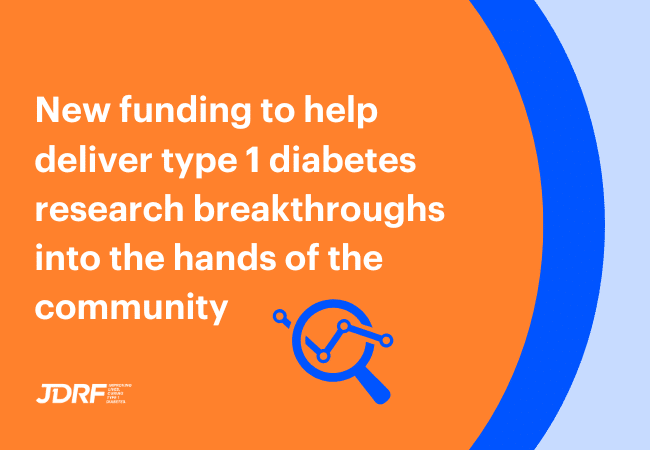Dr Ki Wook Kim awarded JDRF Career Development Award to improve type 1 diabetes risk prediction

Dr Ki Wook Kim, a prominent Australian researcher and emerging leader in type 1 diabetes (T1D) research based at the UNSW Sydney, has been awarded a JDRF Career Development Award (CDA) with US $1M funding committed over the next five years.
Dr Kim is one of only 13 Australians to ever receive the JDRF Career Development Award, reflecting his prominence in the field of T1D and virology.
This is a highly prestigious, internationally competitive fellowship that is awarded to early career researchers in the field of T1D. Dr Kim’s success recognises the significant contribution he has already made to understandings about the role of viruses in the onset of T1D and will enhance the development of T1D risk prediction through the continuation of his research.
Dr Kim’s CDA project strives to revolutionise the way scientists and clinicians predict an individual’s susceptibility to T1D. The current approach, which relies heavily on genetic data information, family history and tests to determine the presence of biomarkers (or autoantibodies) is limited in its scope and screening is typically only offered to those with a familial history of T1D.
However, around 90% of newly diagnosed cases have no family history – highlighting the urgent and unmet need to develop approaches to better identify individuals who are at risk of developing T1D.
What research will the CDA make possible?
Dr Kim and his research team will utilise advanced computing and statistical methods to create what is known as a Combined Risk Score 2 (CRS2) that will evaluate the benefits of including early-life viral infections, changes in protein, and new markers in the body, to better predict an individual’s T1D risk later in life.
By doing so, he hopes to create a more accurate method for determining T1D risk that can be used in future clinical studies and T1D risk screening programs.
Why is this needed?
To date, no study has deeply evaluated the potential benefits of including this type of information to predict an individual’s risk of developing T1D later in life. Currently, T1D risk prediction is based primarily on genetic information, islet autoantibody presence, and family history of T1D.
However, there is evidence that has been studied by Dr Kim and others that suggests early warning and early intervention through clinical trial participation could be possible if the CRS2 he is investigating is applied.
What could this mean for the T1D community?
The impact of this type of research is far-reaching, with multiple avenues for significant benefits. These include:
- Earlier determination of high-risk individuals mean that they can be offered enrolment into clinical trials sooner, ultimately leading to a reduction in T1D diagnoses.
- Significant reduction in the number of individuals presenting with the life-threatening challenges of diabetic ketoacidosis (DKA) at diagnosis.
- Fast-tracked access to disease modifying therapies, like Teplizumab in the future, that can delay or prevent T1D diagnoses altogether when it has been identified in its pre-symptomatic stage
More about Dr Ki Wook Kim
Dr Kim has been an integral part of the global network of researchers exploring the impact of viral infections in T1D and has been a driving force bringing the most advanced technologies in viral molecular genetics that are helping to identify viruses relevant to T1D onset.
He is also a member of the Environmental Determinants of Islet Autoimmunity (ENDIA) Steering Committee and Virology theme leader.
Prior to this Career Development Award, Dr Kim has been extensively supported by JDRF through a number of research grants, including a Postdoctoral Fellowship and an ENDIA Early-Mid Career Research Science Accelerator Award. These programs are supported in part by The Leona M. and Harry B. Helmsley Charitable Trust. Dr Kim is also an investigator on the Helmsley-supported ENDIA Science Continuation grant.
About JDRF’s Career Development Award
JDRF’s Career Development Awards are designed to foster career development and productivity of the best and brightest early-career researchers. Its primary purpose is to support exceptionally promising scientists with innovative, cutting-edge research ideas to help them further establish themselves as world-leading researchers.




